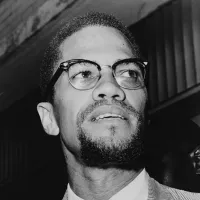Spike Lee is an acclaimed American filmmaker and actor known for his impactful exploration of race relations, challenges within the Black community, media influence, urban issues like crime and poverty, and broader political themes. His distinguished career has garnered significant recognition, including an Academy Award, BAFTA Award, Primetime Emmy Awards, and Peabody Awards. He has also received nominations for Golden Globe Awards and a Grammy Award.
1954: Release of On the Waterfront
In 1954, Elia Kazan released the movie On the Waterfront, one of Spike Lee's favorite movies.
March 20, 1957: Spike Lee's Birth
On March 20, 1957, Shelton Jackson "Spike" Lee was born. He is an American filmmaker and actor known for exploring race relations and political issues.
1957: Release of A Face in the Crowd
In 1957, Elia Kazan released the movie A Face in the Crowd, one of Spike Lee's favorite movies.
1963: Release of High and Low Movie
In 1963, Akira Kurosawa directed the movie High and Low, which Spike Lee is reinterpreting in his movie, Highest 2 Lowest.
1963: 16th Street Baptist Church bombing
In 1963, the 16th Street Baptist Church bombing occurred in Birmingham, Alabama, an event which Spike Lee documented in his 1997 film '4 Little Girls'.
February 21, 1965: Malcolm X Assassination
On February 21, 1965, Malcolm X was assassinated, an event that is portrayed in Spike Lee's 1992 film Malcolm X.
1973: Release of Mean Streets
In 1973, Martin Scorsese released the movie Mean Streets, one of Spike Lee's favorite movies.
1979: Graduation from Morehouse College
In 1979, Spike Lee graduated with a B.A. in mass communication from Morehouse College.
1982: Earned MFA from NYU
In 1982, Spike Lee earned a Master of Fine Arts in film and television from New York University's Tisch School of the Arts.
1983: Directorial Debut with Student Film and Award
In 1983, Spike Lee directed his student film Joe's Bed-Stuy Barbershop: We Cut Heads at New York University's Tisch School of the Arts. The film won a Student Academy Award.
1983: Premiere of 'Joe's Bed-Stuy Barbershop: We Cut Heads'
In 1983, Spike Lee premiered his first independent short film titled Joe's Bed-Stuy Barbershop: We Cut Heads, which won a Student Academy Award.
1983: Winning Student Academy Award
In 1983, Spike Lee won the Student Academy Award for his film Joe's Bed-Stuy Barbershop: We Cut Heads.
1985: Began Work on 'She's Gotta Have It'
In 1985, Spike Lee began work on his first feature film, She's Gotta Have It.
1986: Directorial Debut with 'She's Gotta Have It'
In 1986, Spike Lee made his directorial debut with the comedy She's Gotta Have It, which gained attention for its unique storytelling and exploration of relationships.
1986: Release of 'She's Gotta Have It'
In 1986, Spike Lee's first feature film, She's Gotta Have It, was released, launching his career and grossing over $7 million at the U.S. box office.
1988: Release of 'School Daze'
In 1988, Spike Lee followed the success of 'She's Gotta Have It' with the musical drama School Daze.
1989: Critical Acclaim for 'Do the Right Thing'
In 1989, Spike Lee received widespread critical acclaim for the drama Do the Right Thing, which earned him a nomination for the Academy Award for Best Original Screenplay.
1989: Release of 'Do the Right Thing'
In 1989, Spike Lee released Do the Right Thing, a film focusing on racial tensions in a Brooklyn neighborhood. The film garnered critical acclaim and was considered one of the best films of the year by critics such as Gene Siskel and Roger Ebert.
1989: Do the Right Thing Missing Best Picture Nomination
In 1989, Spike Lee's film Do the Right Thing missed out on a Best Picture nomination at the Oscars, drawing parallels to the 2019 Oscars where BlacKkKlansman competed against eventual winner Green Book.
1990: Release of 'Mo' Better Blues' and Antisemitism Accusations
In 1990, Spike Lee released Mo' Better Blues, which led to accusations of antisemitism from the Anti-Defamation League and film critics regarding the portrayal of Jewish characters.
1990: Release of 'Mo' Better Blues'
In 1990, Spike Lee wrote and directed the film Mo' Better Blues.
1990: Directing Commercials for Levi's and Nike
In mid-1990, Levi's hired Spike Lee to direct a series of TV commercials for their 501 button-fly jeans. Nike also offered Lee a job directing commercials, pairing his character Mars Blackmon with Michael Jordan for the Air Jordan line marketing campaign.
1991: Release of 'Jungle Fever'
In 1991, Spike Lee released Jungle Fever, for which Samuel L. Jackson received acclaim for his performance.
1991: Teaching at Harvard
In 1991, Spike Lee taught a filmmaking course at Harvard.
1992: Release of 'Malcolm X' and Golden Bear Win
In 1992, Spike Lee directed the historical epic Malcolm X, earning the Berlin International Film Festival's Golden Bear.
1992: Meeting Tonya Lewis
In 1992, Spike Lee met his future wife, attorney Tonya Lewis Lee.
1992: Release of 'Malcolm X'
In 1992, Spike Lee released his biographical epic film Malcolm X, starring Denzel Washington. The film was widely acclaimed and dramatized key events in Malcolm X's life.
1993: Teaching at NYU's Tisch School of the Arts
In 1993, Spike Lee began teaching at New York University's Tisch School of the Arts in the Graduate Film Program, where he also received his master of fine arts degree.
1994: Release of 'Crooklyn'
In 1994, Spike Lee released the film Crooklyn.
1995: Release of 'Clockers'
In 1995, Spike Lee released the film Clockers.
1996: Releases of 'Girl 6' and 'Get on the Bus'
In 1996, Spike Lee released the films Girl 6 and Get on the Bus.
1997: Directing '4 Little Girls' and Academy Award Nomination
In 1997, Spike Lee directed the documentary 4 Little Girls, which was nominated for the Academy Award for Best Documentary Feature Film.
1997: Release of '4 Little Girls'
In 1997, Spike Lee released the documentary 4 Little Girls, about the bombing of the 16th Street Baptist Church in Birmingham, Alabama, and was nominated for an Academy Award for Best Feature Documentary.
1998: Release of 'He Got Game'
In 1998, Spike Lee had his third collaboration with Denzel Washington on the sports drama He Got Game.
May 1999: Controversial Comment about Charlton Heston
In May 1999, the New York Post reported that Spike Lee made an inflammatory comment about Charlton Heston, president of the National Rifle Association of America (NRA), at the Cannes Film Festival, which led to condemnation from Republican House Majority Leader Dick Armey.
1999: Release of 'Summer of Sam'
In 1999, Spike Lee released Summer of Sam, based on the Son of Sam murders.
2000: Release of 'Bamboozled'
In 2000, Spike Lee directed Bamboozled, a satire about a modern televised minstrel show.
2002: Release of '25th Hour'
In 2002, Spike Lee directed the film 25th Hour starring Edward Norton and Philip Seymour Hoffman.
2002: Honorary BAFTA Award
In 2002, Spike Lee received the Honorary BAFTA Award.
2002: Appointment as Artistic Director at NYU
In 2002, Spike Lee was appointed as artistic director of New York University's Tisch School of the Arts.
June 2003: Lawsuit against Spike TV
In June 2003, Spike Lee sought an injunction against Spike TV to prevent them from using his nickname, claiming viewers would associate him with the channel due to his fame.
2003: Original Oldboy Movie
In 2003, Park Chan-wook released the movie Oldboy, which Spike Lee remade in 2013.
2003: Honorary César Award
In 2003, Spike Lee received an Honorary César.
2004: Release of 'She Hate Me'
In 2004, Spike Lee released She Hate Me, which received negative reviews.
October 2005: Comments on Hurricane Katrina
In October 2005, Spike Lee responded to a CNN anchor's question by suggesting the government intentionally ignored black Americans during Hurricane Katrina.
April 7, 2006: Lee Discusses 'Driving Miss Daisy' Oscar Win
In an April 7, 2006, interview with New York magazine, Spike Lee expressed his disappointment that Do the Right Thing was not nominated for Best Picture at the Academy Awards, stating that the film Driving Miss Daisy's win, which he believed was based on safe stereotypes, affected him more.
2006: Release of 'Inside Man'
In 2006, Spike Lee directed Inside Man, a studio heist thriller starring Denzel Washington, Jodie Foster, and Clive Owen. The film was a critical and financial success.
2006: Directing 'Inside Man' and HBO Series 'When the Levees Broke'
In 2006, Spike Lee directed the film Inside Man and the HBO series When the Levees Broke, the latter of which won two Primetime Emmy Awards.
May 2, 2007: San Francisco Film Society's Directing Award
On May 2, 2007, Spike Lee was honored with the San Francisco Film Society's Directing Award at the 50th San Francisco International Film Festival.
2008: Receiving the Wexner Prize and Directing 'Miracle at St. Anna'
In 2008, Spike Lee received the Wexner Prize and directed the World War II drama Miracle at St. Anna.
2008: Criticism of Clint Eastwood at Cannes Film Festival
In 2008, at the Cannes Film Festival, Spike Lee criticized Clint Eastwood for not depicting black Marines in his World War II film, Flags of Our Fathers. Eastwood responded that his film was specifically about the Marines who raised the flag on Mount Suribachi at Iwo Jima, noting the racial segregation in the U.S. military during World War II. The exchange escalated, but Lee later claimed reconciliation with Eastwood through Steven Spielberg.
December 16, 2009: '25th Hour' Added to Roger Ebert's Great Movies List
On December 16, 2009, film critic Roger Ebert added Spike Lee's film 25th Hour to his "Great Movies" list.
2010: Directing 'If God Is Willing and da Creek Don't Rise'
In 2010, Spike Lee directed the HBO documentary If God Is Willing and da Creek Don't Rise.
March 2012: Incorrect Tweet About George Zimmerman
In March 2012, Spike Lee tweeted an incorrect home address for George Zimmerman after the killing of Trayvon Martin, leading to death threats for the actual occupants. Lee apologized and reached a settlement with the affected family.
2012: Directing Red Hook Summer
In 2012, Spike Lee directed Red Hook Summer, reprising his role as Mookie from Do the Right Thing.
November 2013: Negligence Lawsuit
In November 2013, the McClains filed a negligence lawsuit against Spike Lee, accusing him of "encouraging a dangerous mob mentality among his Twitter followers, as well as the public-at-large". The lawsuit, which a court filing reportedly valued at $1.2 million, alleged that the couple suffered "injuries and damages" that continued after the initial settlement up through Zimmerman's trial in 2013.
2013: Brother's last movie as still photographer
Before 2013, David Lee, Spike Lee's brother, worked as a still photographer for all of his older brother's films. After 2013 he worked on other films and tv shows as a still photographer.
2013: Directing Oldboy Remake
In 2013, Spike Lee directed Oldboy, a remake of the 2003 Park Chan-wook film. Lee removed his trademark "A Spike Lee Joint" credit, using "A Spike Lee Film" instead, reportedly due to creative differences during the editing process.
2013: Winning The Dorothy and Lillian Gish Prize
In 2013, Spike Lee won The Dorothy and Lillian Gish Prize, a prestigious American arts award worth $300,000.
2013: Oldboy Credit
In 2013, Spike Lee's film, Oldboy, used "A Spike Lee Film" credit instead of the traditional "A Spike Lee Joint" credit after producers had it re-edited.
2014: Directing Da Sweet Blood of Jesus
In 2014, Spike Lee directed Da Sweet Blood of Jesus, which was primarily funded on Kickstarter.
2014: Death of Brother Christopher
In 2014, Spike Lee's brother, Christopher, passed away.
2015: Directing MyCareer story mode in NBA 2K16
In 2015, Spike Lee directed, wrote, and produced the MyCareer story mode in the video game NBA 2K16.
2015: Receiving Academy Honorary Award
In 2015, Spike Lee received an Academy Honorary Award for his contributions to film. Wesley Snipes, Denzel Washington, and Samuel L. Jackson presented the award.
2015: Release of Chi-Raq
In 2015, Spike Lee released Chi-Raq, a modern-day adaptation of Aristophanes' Lysistrata, exploring race, sex, and violence in Chicago. Amazon Studios released the film, which received generally positive reviews.
2015: Part of Capital One's "Road Trip" Advertising Campaign
Since 2015, Spike Lee has been part of Capital One's "Road Trip" advertising campaign, starring in television commercials alongside Samuel L. Jackson and Charles Barkley to coincide with March Madness.
May 18, 2016: Commencement address at The Johns Hopkins University
On May 18, 2016, Spike Lee delivered the Commencement address for The Johns Hopkins University Class of 2016.
2017: '4 Little Girls' selected for preservation
In 2017, Spike Lee's 1997 documentary, '4 Little Girls', was selected for preservation in the United States National Film Registry by the Library of Congress.
2018: Favorite Films
In 2018, Spike Lee cited On the Waterfront (1954), A Face in the Crowd (1957), and Mean Streets (1973) as some of his favorite films.
2018: Academy Award and Cannes Film Festival Grand Prix for 'BlacKkKlansman'
In 2018, Spike Lee won the Academy Award for Best Adapted Screenplay and the Cannes Film Festival Grand Prix Award for the biographical crime dramedy BlacKkKlansman.
2018: Grand Prix at Cannes Film Festival
In 2018, Spike Lee's film BlacKkKlansman won the Grand Prix award at the Cannes Film Festival, where two of his films have competed for the Palme d'Or award.
2018: BlacKkKlansman Premieres and Wins Grand Prix
In 2018, Spike Lee's film BlacKkKlansman, a true crime drama set in the 1970s, premiered at the Cannes Film Festival, where it won the Grand Prix. It was released in North America the following August and received universal praise.
2019: Academy Award Nominations and Win for BlacKkKlansman
In 2019, Spike Lee received his first ever nomination for the Academy Award for Best Director for BlacKkKlansman, which was also nominated for Best Picture. Lee won his first competitive Academy Award for Best Adapted Screenplay for BlacKkKlansman. He expressed dissatisfaction with Green Book winning Best Picture.
2019: Best Adapted Screenplay Academy Award
In 2019, Spike Lee's film BlacKkKlansman received six Academy Award nominations, with Lee himself nominated for Best Picture, Best Director, and Best Adapted Screenplay. He won the Best Adapted Screenplay award, marking his first Academy Award win.
March 2020: Disagreement at Madison Square Garden
In March 2020, Spike Lee had a disagreement with the security team at Madison Square Garden over which entrance to use to see the New York Knicks and stated he would not attend the rest of the games for the season.
May 2020: Release of NEW YORK NEW YORK Short Film
In May 2020, Spike Lee published a three-minute short film, NEW YORK NEW YORK, on Instagram that was later featured on the city's official website.
June 12, 2020: Release of Da 5 Bloods on Netflix
On June 12, 2020, Spike Lee's Vietnam war film Da 5 Bloods was released on Netflix, starring Delroy Lindo, Jonathan Majors, Clarke Peters, Isiah Whitlock Jr., Mélanie Thierry, Paul Walter Hauser and Chadwick Boseman. The film received widespread critical acclaim.
2020: Releases of 'Da 5 Bloods' and 'American Utopia'
In 2020, Spike Lee directed both the film Da 5 Bloods and the David Byrne concert film American Utopia.
2023: National Medal of Arts
In 2023, Spike Lee received the National Medal of Arts.
2023: Ebert Director Award at TIFF Tribute Awards
In 2023, Spike Lee was named as the recipient of the Ebert Director Award at the TIFF Tribute Awards for the Toronto International Film Festival.
February 2024: Confirmed as Director of Highest 2 Lowest
In February 2024, Spike Lee was confirmed as the director of Highest 2 Lowest, a reinterpretation of High and Low (1963), with Denzel Washington starring.
March 2024: Board of Governor's Award from the American Society of Cinematographers
In March 2024, Spike Lee received a Board of Governor's Award from the American Society of Cinematographers.
October 24, 2024: Endorsing Kamala Harris
On October 24, 2024, Spike Lee endorsed Kamala Harris in the United States presidential election and spoke at one of her campaign rallies.
2024: Attending New York Liberty Games
In 2024, Spike Lee frequented New York Liberty games at Barclays Center, sitting courtside during the WNBA playoffs in a Sabrina Ionescu jersey.
June 2025: Narrating Inter Milan Promotional Video
In June 2025, Spike Lee featured as the narrator in a promotional video for the Italian soccer team Inter Milan.
October 2025: Lifetime Achievement Award from the Chicago International Film Festival
In October 2025, Spike Lee accepted a Lifetime Achievement Award from the Chicago International Film Festival.
2025: Release of 'Highest 2 Lowest'
In 2025, Spike Lee is credited with directing the film Highest 2 Lowest.
Mentioned in this timeline

Chadwick Aaron Boseman was a celebrated American actor and playwright...

Basketball is a team sport played on a rectangular court...

Michael Jordan widely considered one of basketball's greatest players significantly...

Instagram is a photo and video-sharing social networking service owned...

Malcolm X was a prominent African American activist and minister...

Denzel Washington is a highly acclaimed American actor producer and...
Trending

10 minutes ago Space Force Upgrades, Battle Management, and Role in Raids Spark Resource Push
10 minutes ago Kootenai County Deputies and Firefighter Honored with Medals of Honor for Bravery

10 minutes ago Venezuela's history, US aggression, and Trump's oil interests fuel ongoing tensions with Nicolás Maduro.

Delcy Elo na Rodr guez G mez is a Venezuelan lawyer diplomat and politician currently serving as the acting president...

Kris Murray is an American professional basketball player currently with the Portland Trail Blazers in the NBA He played college...

11 minutes ago Witkoff discusses Iran's nuclear program and Trump's approach amidst ongoing protests.
Popular

Jesse Jackson is an American civil rights activist politician and...

Susan Rice is an American diplomat and public official prominent...

Barack Obama the th U S President - was the...

Michael Joseph Jackson the King of Pop was a highly...

Bernie Sanders is a prominent American politician currently serving as...

XXXTentacion born Jahseh Dwayne Ricardo Onfroy was a controversial yet...
